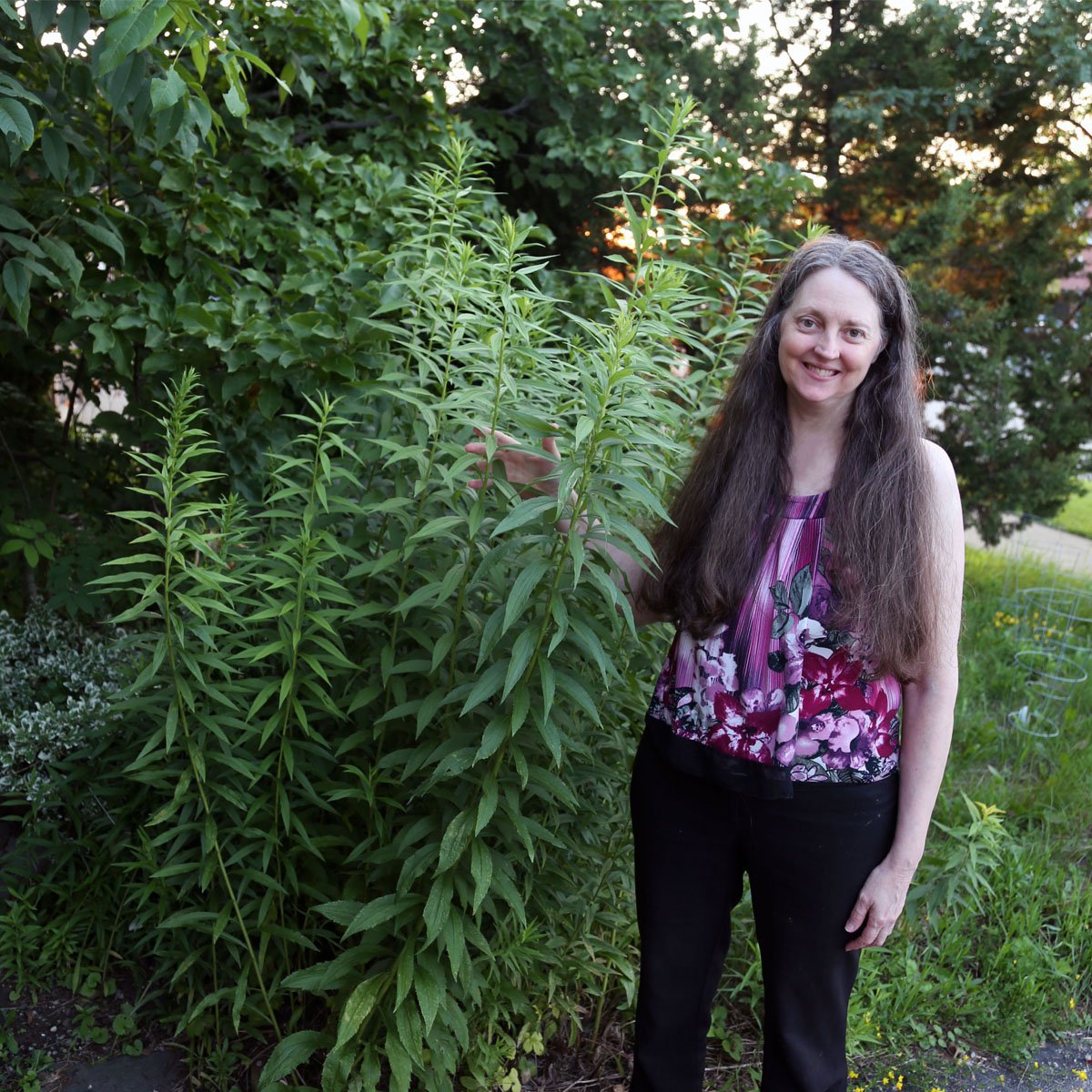A Burlington homeowner is fighting charges over her “naturalized garden” of native plants in her front and back yards. The city is taking Karen Barnes to Provincial Offences Court, seeking up to $400,000 in fines for violating a bylaw order to cut it down.
Barnes is challenging the case on constitutional grounds, arguing her right to freedom of expression through gardening is protected under the Charter of Rights and Freedoms.
She says her garden supports pollinators, biodiversity and wildlife, reflecting her environmental and spiritual beliefs. She appeared for a pre-trial hearing on Wednesday and is scheduled for a two-day trial in November, according to her lawyer, Vilko Zbogar.
Zbogar says the case is about more than the fine. “Courts have recognized since at least 1996 that freedom of expression under the Charter protects natural gardens as expressions of profound environmental values,” he said. “For Karen, it’s also a spiritual exercise — tied to her creed and beliefs. This falls under Sections 2(a) and 2(b) of the Charter: freedom of conscience and religion and freedom of expression.”
Experts say naturalized gardens and meadows can attract far more pollinators than regularly mown lawns, while also using less water and improving soil health.



The term “weed” is stupid. Arbitrarily deciding that certain native plants are undesirable is such a colonizer mindset
I think the term is fine if you approach it from an “invasive species” mindset rather than an “undesirable” mindset.
I don’t know if it was intentionally done by my teachers, but that’s the impression I always got about the term since it was usually brought up in the context of introduced species of plants causing harm to native species. Stuff like dandelions and such.
I understand what you are saying, but growing up the term ‘weed’ was always used in the ‘undesirable plants’ sense and the term ‘invasive species’ is more accurate when you are discussing them specifically. When I first started gardening, the guy who trained me defined weeds as ‘any plant the client doesn’t want growing on their property’.
Dandelions are a complex topic. While some consider them “Noxious Weeds”, other people recognize their value as important sources of food for insects, they attract pollinators, and they also release ethylene which is a gas that encourages fruit setting and fruit ripening, so they are sometimes grown as ‘companion plants’.
Dandelions are only weeds if you don’t want them there, like any other ‘weed’.
This is the real problem. Where the fuck did you find a plant only native in South America?
Mmh, I’d describe it more as self-centered in general, since there are plants the world over that get called weeds. “We don’t see any value in this, therefore it should be eradicated in favour of things we can use.”
It’s also, in the simplest way, incompetent.
All those weeds provide some ecological service in some way. If you look at my yard and note it’s covered in tall straggly white flowers, you could say weedy, and be right. I would clarify that wild carrots are helping convert our heavy clay soil into good tilth, and supporting a massive number of pollinators and pest predators.
And why would we put up with yellow dock going to seed everywhere? It’s the most nutritious chicken fodder, and it also gives tilth to heavy clay.
Don’t get me started about dandelion!!
there is even non-native plants that naturalized, but not invasive.
In favour of things which we have no use for as a status symbol.
Displaying a status symbol is a use—just a very poor one.
Your only comparing it to grass doesn’t help.
Ragweed can burn in hell.
kudzu, ivy, and any vine plants. although kudzu is now being combatted with the weevil.
F yeah, allergy brother/sister!
they usually use the term noxious weeds